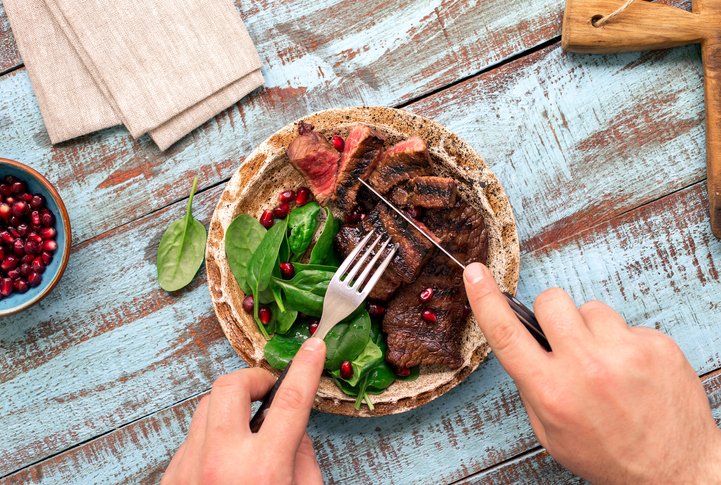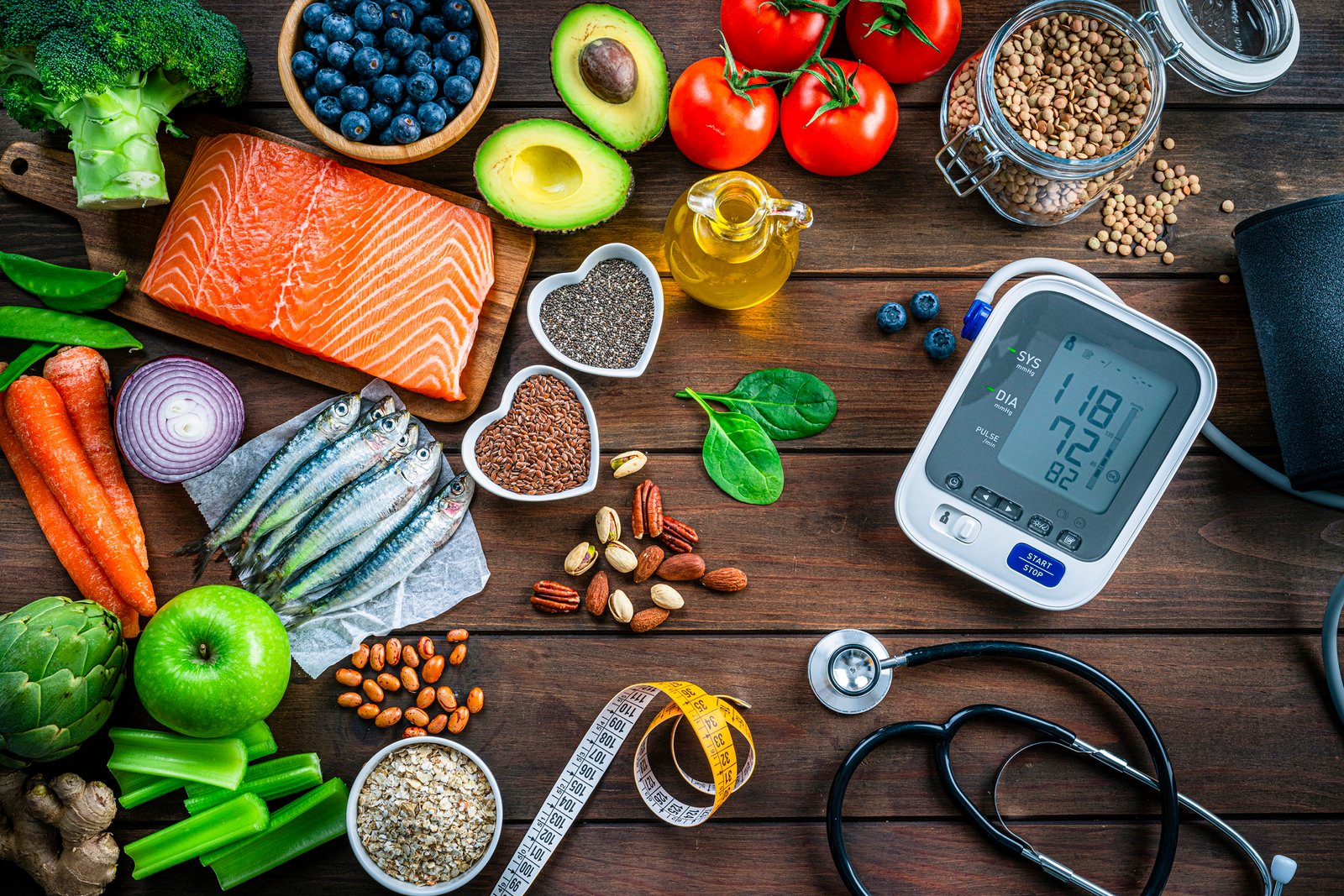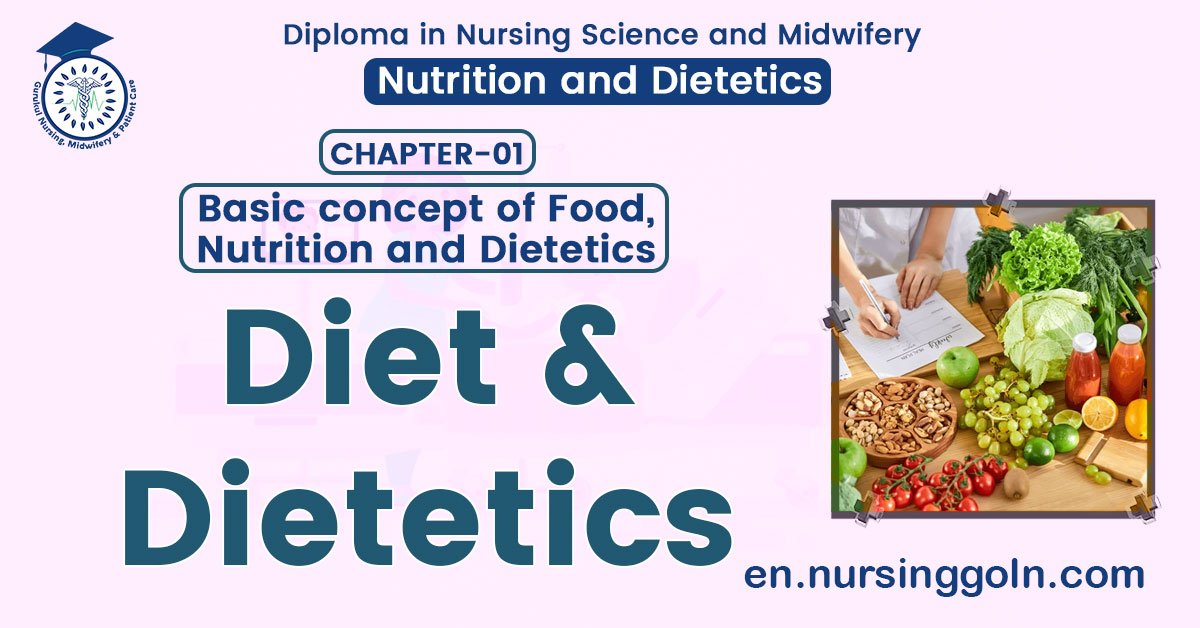Diet and Dietetics – This book covers the entire syllabus of “Nutrition and Dietetics” prescribed by BNMC-for all Diploma in Nursing Science and Midwifery students. We tried to accommodate latest information and topics. This book is examination friendly setup according to the teachers’ lectures and examination’s questions. At the end of the book previous university questions are given. We hope in touch with the book students’ knowledge will be upgraded and flourished. The unique way of presentation may make your reading of the book a pleasurable experience.

Diet and Dietetics
Concept about Diet
In nutrition, diet is the sum of food consumed by a person or other organism. The word diet often implies the use of specific intake of nutrition for health or weight-management reasons (with the two often being related). Although humans are omnivores, each culture and each person holds some food preferences or some food taboos. This may be due to personal tastes or ethical reasons. Individual dietary choices may be more or less healthy.
An unhealthy diet is one of the major risk factors for a range of chronic diseases, including cardiovascular diseases, cancer, diabetes and other conditions linked to obesity. Specific recommendations for a healthy diet include: eating more fruit, vegetables, legumes, nuts and grains; cutting down on salt, sugar and fats. It is also advisable to choose unsaturated fats, instead of saturated fats and towards the elimination of trans-fatty acids.
Improving dietary habits is a societal, not just an individual problem. Therefore it demands a population- based, multi sectorial, multi-disciplinary, and culturally relevant approach.
(Ref by-www.who.int/Health report of WHO, 2017+ FAO/WHO Second International Conference on Nutrition, 2017)
Definition of Diet:
Diet is the total solid, semisolids or liquid foods consumed by an individual or by a population group, either on an average basis or during a specified period.
(Ref by: K. Park/24th/647)
Or
In nutrition, diet is the sum of food consumed by a person or other organism. The word diet often implies the use of specific intake of nutrition for health or weight-management reasons.
Definition of Dietetics:
Dietetics is the combined science and art of feeding individuals or groups under different economic or health conditions according to the principles of nutrition and management.
(Ref by: Onila Salins’s Essential Nutrition/1/03)
[OTHER DEFINITIONS – NICE TO KNOWI
- Dietetics is the practical application of the principle of nutrition, which includes planning of meals for the healthy as well as the sick. (Molly Sam’s/ A text book of Nutrition for Nurses/1/01)
- Dietetics is the science and art of food, the goal of which is to improve health through optimal feeding practices.
Principles of human diet:
- A balanced diet meets the nutritional needs of the individual and the family.
- Well-balanced diet provides carbohydrates, proteins, fats vitamins, minerals and water.
- It is cost effective, cheap and easily available.
- Nutritive values of food are improved and enhanced by sprouting and fermenting
- Individuals’ likes and dislikes, food allergies are considered while planning well-balanced diet.
- Include vegetables and fruits in daily diet.
- Avoid fried food.
- Drink 6-8 glasses of water every day.
- Use mixed cereals and pulses in the diet.
Types of Diet Used in Hospitals:
(Ref by: Onila Salins’s Essential Nutrition/1/58)
1. Normal food: An average patient whose appetite is normal is given normal food.
2. Soft diet: it contains food which requires little chewing and contains no fibre or seasoning.
3. High diet: It contains no fat. Cooked simply.
4. Liquid diet:
✓ Full liquid diet: Soups, puddings, custards, cooked cereals, milk.
✓Clear diet: Water, tea, lemon,
✓ Bland diet: Full liquid diet except coffee, tea, colas and soups.
5. Therapeutic diet:
- Diabetic diet
- High caloric diet
- Low caloric diet
- Sippe’s diet
- Fat free diet
(Ref by: Fundamentals of nursing/Alphonsa Jacob/vol-1/01)

Some Dietary Problems during Sickness:
1. During sickness, there will be disturbance of gastro intestinal function.
2. Anorexia (loss of appetite).
3. Dyspepsia.
4. Defective digestion and absorption.
5. Lack of exercise decreases need for energy.
6. Tissue building foods are needed more.
7. The process of anabolism and catabolism are not normal in sickness.
8. In some kinds of illness, protein requirements are more while in some others, both protein and carbohydrates are needed in larger amounts.
9. Vomiting and diarrhea are problems in which intravenous fluid administration is required.
